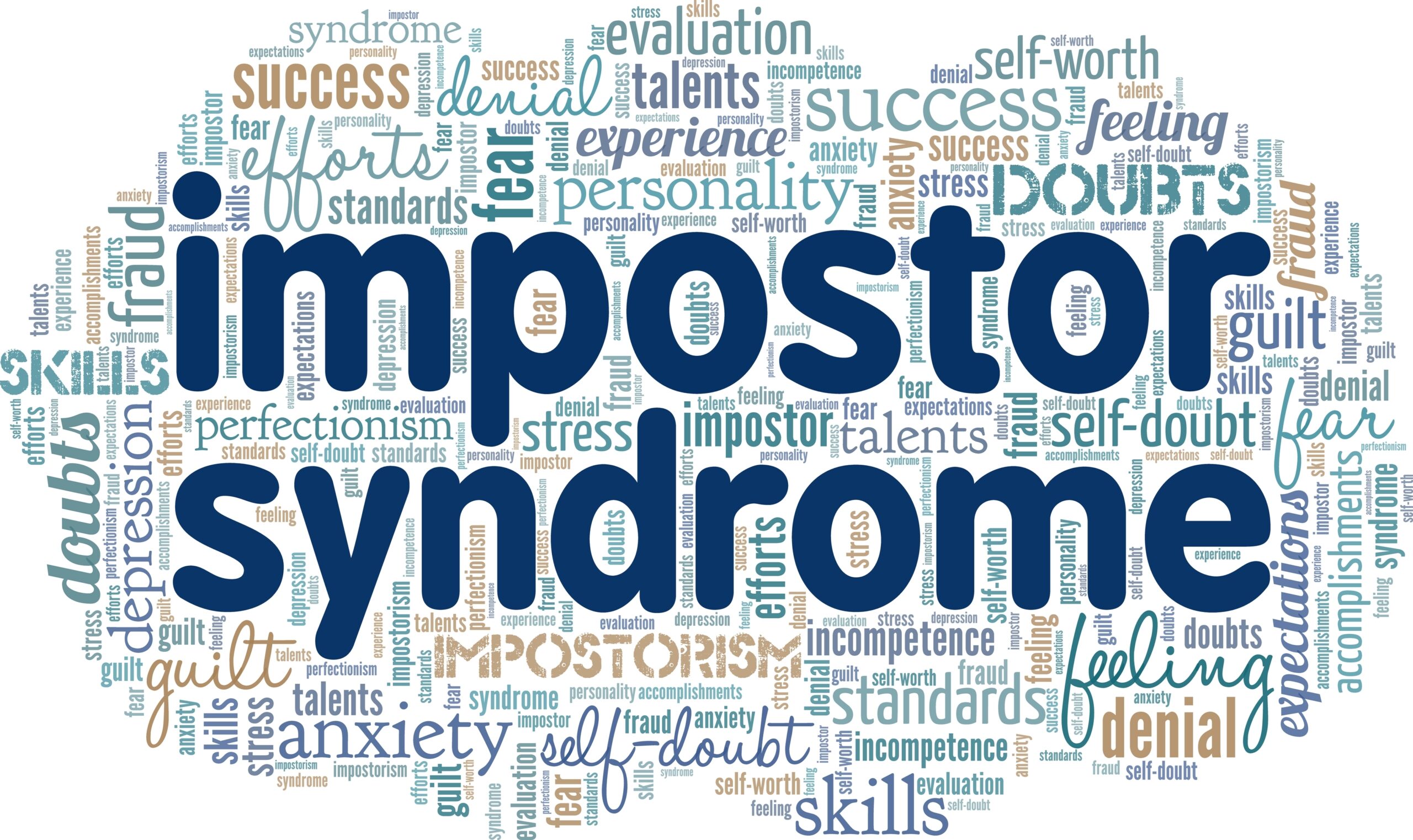


Is Burnout leading to Imposter Syndrome or is Imposter Syndrome leading to Burnout?
Let’s explore this question further.
I was listening to a Peloton meditation guided by trainer Anna Greenberg and heard her say “Aim for progress, not perfection.” It is the same line I have used multiple times with my coaching clients who–like many high achieving individuals–measure progress through the lens of perfectionism. If it isn’t perfect, it’s not good enough.
Striving for perfection, especially for an individual that is constantly multi-tasking and juggling multiple priorities, adds more to an already full plate. This can increase burnout. Aiming for perfection can also be a sign of Imposter Syndrome, often engrained from youth.
What is Imposter Syndrome?
Imposter Syndrome is a phenomenon or condition where an individual believes they are not worthy of their accomplishments and/or awards. They do not believe that the accolades given to them are warranted, and believe their accomplishments are the result of luck rather than skill, ability, or experience. This leads to the unfounded fear that someone will discover that they are less competent than they seem. Oftentimes this leads to an individual feeling like a “fake” or a “phony” or an “imposter.”
What is Burnout?
Burnout is a syndrome where an individual has excessive exhaustion caused through prolonged and repeated stress. The World Health Organization defines it as a phenomenon resulting from chronic stress in the workplace, “characterized by 3 dimensions:
Why It’s Important to Tackle Imposter Syndrome
Is Imposter Syndrome bad? In my opinion, it absolutely is.
Individuals can have varying degrees of Imposter Syndrome and can struggle with self-confidence and self-esteem which can then also cycle into serious psychological disorders such as anxiety and depression.
When one is afraid not necessarily of failure, but of being discovered as irrationally not being so great as others have perceived them, they are held back from moving forward in pursuing goals, passion, and dreams.
Why It’s Important to Tackle Burnout
In certain industries and organizations, working long hours is a badge of honor.
For example, for decades, medical trainees were expected to work sometimes up to 100 hours a week until the Accreditation of Graduate Medical Education instituted the 80 hour work week cap to address issues such as burnout.
Physician burnout has been linked in several studies to medical errors as well as causing psychiatric disease including suicide.
Other studies have shown burnout leading to decreased productivity in the workplace.
Connecting Imposter Syndrome and Burnout
Burnout occurs from prolonged stress in the form of physical, mental, or emotional triggers.
An individual trapped in a repeated cycle of work first and sleep, food, and exercise later can experience burnout. Severe forms of burnout can lead to Imposter Syndrome – the excessive lack of energy and enthusiasm leading to questioning “am I doing enough” and “is what I’m producing worth being proud of.”
Basically what we see here is a chicken and egg scenario. It’s tough to determine, in some cases, what came first – Imposter Syndrome of Burnout?
It will take much more research to ascertain what comes first with those with both Imposter Syndrome and Burnout. And not all will have both but varying degrees of one or the other.
But I’m here to tell you it doesn’t matter what came first; what matters is what action you are going to take to mitigate the negative impacts that are being caused from either.
The battle to overcome Burnout and Imposter Syndrome are similar – there needs to be an emphasis on self-care. But my approach is to handle self-care through the lens of promoting self-worth.
Action Steps to Help
Let’s talk action! There are many ways to help conquer the challenges with burnout and Imposter Syndrome, but I have found a few more widely strategies for my friends, family, and clients:
The best strategy of coping with Imposter Syndrome, or Burnout, or both, is awareness. And that first step can be best taken by reflecting on what has been read here and then calling me to discuss. I would welcome the opportunity to discuss and help you begin your journey towards positive change.
Aashi Arora, aashi@iriseexecutivecoaching.com
 Preparing to Step Into CEO Roles
May 30, 2023
Preparing to Step Into CEO Roles
May 30, 2023
 Tackle Imposter Syndrome by Prioritizing This Relationship
May 12, 2023
Tackle Imposter Syndrome by Prioritizing This Relationship
May 12, 2023
 How Do You Know It’s Imposter Syndrome?
Mar 08, 2023
How Do You Know It’s Imposter Syndrome?
Mar 08, 2023
 Imposter Syndrome During a Job Transition
Jan 20, 2023
Imposter Syndrome During a Job Transition
Jan 20, 2023
 4 Strategies for A Successful Interview
Oct 19, 2022
4 Strategies for A Successful Interview
Oct 19, 2022
Please subscribe to receive a pdf of 15 Ways to Tackle Imposter Syndrome
